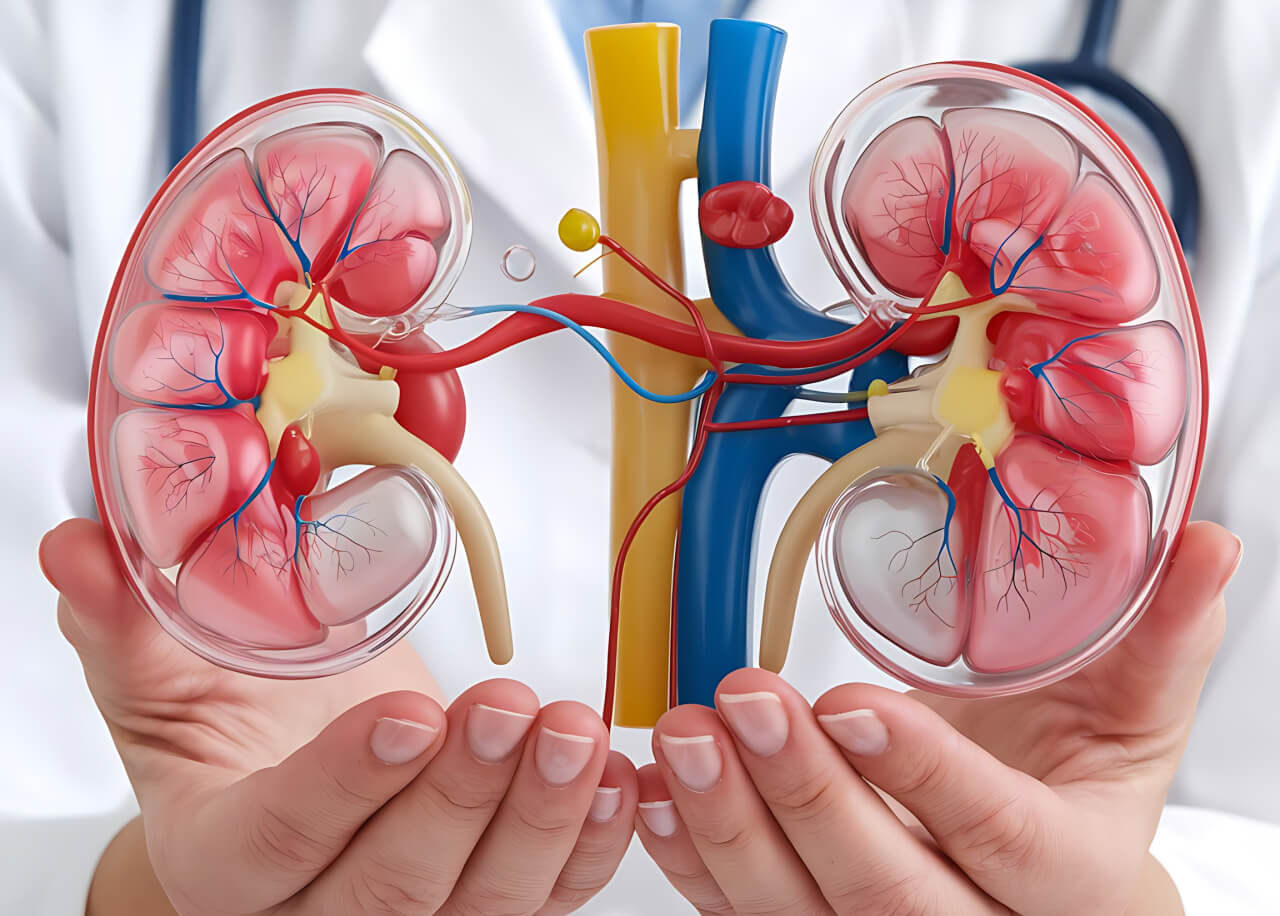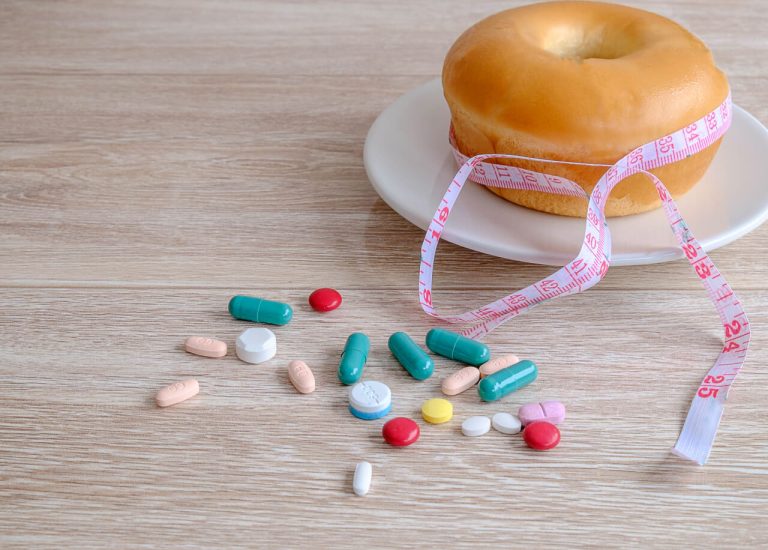Nutrition and Kidney Health: The Complete Guide to Optimizing Your Renal Function

Introduction
Kidneys are essential organs responsible for a wide array of critical functions that keep our bodies in balance. Despite their importance, kidney health often gets overlooked until problems arise. According to the National Kidney Foundation, approximately 37 million Americans suffer from chronic kidney disease (CKD), and many more are at risk due to factors like poor diet, dehydration, and lifestyle choices.
This blog will guide you through the role of kidneys in the body, how good nutrition supports kidney health, ways to prevent and manage kidney stones, and tips to avoid kidney disease or kidney failure.
1. What Kidneys Do for Our Bodies
a. Filtration of Blood
The kidneys act as the body’s filtration system, removing toxins, waste products, and excess fluids from the blood to form urine. Each day, they filter around 150 liters of blood and excrete 1 to 2 liters of urine. Waste products like urea and creatinine are byproducts of protein metabolism, which need to be eliminated from the body.
b. Regulation of Fluid Balance
By controlling the concentration of solutes in the body, kidneys play a vital role in maintaining a balanced internal environment (homeostasis). They regulate water retention and excretion to ensure that body fluids are at optimal levels.
c. Electrolyte and Acid-Base Balance
Kidneys help regulate key electrolytes, including sodium, potassium, calcium, and phosphate, ensuring that they are in the proper concentration for cellular functions. They also balance pH levels by excreting acids and reabsorbing bicarbonates.
d. Blood Pressure Regulation
The kidneys produce renin, an enzyme that helps regulate blood pressure through the renin-angiotensin-aldosterone system (RAAS). By controlling fluid volume and the constriction of blood vessels, kidneys can influence blood pressure levels.
e. Red Blood Cell Production
Through the production of the hormone erythropoietin, the kidneys stimulate the production of red blood cells in the bone marrow. This ensures that the body maintains enough oxygen-carrying capacity to support tissue function and energy production.
f. Vitamin D Activation
Kidneys convert inactive vitamin D from the skin and diet into its active form, calcitriol, which is essential for calcium absorption, bone health, and immune function.
2. Good Nutrition for Kidney Health
a. Hydration is Key
Water is vital for kidney function because it helps flush out waste and prevent the formation of kidney stones. A well-hydrated body allows the kidneys to work efficiently, reducing the risk of dehydration, which can lead to concentrated urine, increased waste buildup, and potential kidney damage.
Tip: Drink at least 8-10 glasses of water daily unless restricted by a healthcare provider due to existing kidney conditions.
b. Eat a Balanced Diet Rich in Whole Foods
A nutrient-dense diet filled with fruits, vegetables, whole grains, lean proteins, and healthy fats can support kidney function by reducing inflammation and oxidative stress. Here’s a breakdown of nutrients vital for kidney health:
- Antioxidant-Rich Foods: Foods high in antioxidants, such as berries (blueberries, raspberries), leafy greens, and cruciferous vegetables (broccoli, kale), protect the kidneys from oxidative stress caused by toxins and free radicals.
- Lean Proteins: While excessive protein intake can stress the kidneys, a moderate amount of lean protein like chicken, turkey, and fish supports tissue repair without overburdening the kidneys.
- Healthy Fats: Incorporating healthy fats such as those found in avocados, olive oil, and fatty fish (rich in omega-3) can reduce inflammation, a key factor in kidney health.
c. Manage Sodium Intake
Excessive sodium can raise blood pressure and increase the risk of kidney damage. The kidneys work hard to excrete sodium, so reducing your intake helps ease their workload.
Tip: Stick to less than 2,300 mg of sodium per day (roughly 1 teaspoon of salt) and avoid processed foods high in sodium like canned soups, deli meats, and snack foods.
d. Focus on Potassium-Rich Foods—But with Caution
Potassium is crucial for regulating heart and muscle function, but individuals with impaired kidney function need to limit their potassium intake as the kidneys are responsible for removing excess potassium from the blood. For those with healthy kidneys, potassium-rich foods such as bananas, sweet potatoes, spinach, and oranges help balance sodium levels and promote overall kidney health.
e. Phosphorus and Calcium Balance
High phosphorus levels can lead to calcium imbalances, negatively affecting bone and kidney health. Phosphorus is found in protein-rich foods, dairy products, and processed foods. For kidney health, balance phosphorus intake by consuming calcium-rich foods such as low-fat dairy, fortified plant-based milks, or green leafy vegetables.
3. How to Avoid Kidney Stones and Manage Kidney Stone Development
a. What Are Kidney Stones?
Kidney stones are hard deposits made of minerals and salts that form inside the kidneys. They can be incredibly painful when passing through the urinary tract. There are four main types of kidney stones: calcium oxalate, uric acid, struvite, and cystine stones.
b. Preventing Kidney Stones
The best way to prevent kidney stones is to adopt a diet that avoids excessive intake of the substances that form them.
- Increase Fluid Intake: As with general kidney health, staying well-hydrated dilutes urine and decreases the likelihood of stone formation.
- Limit Oxalate-Rich Foods: Calcium oxalate stones are the most common type. Reduce oxalate-rich foods like spinach, rhubarb, and beets, but balance this with adequate calcium intake to bind oxalate in the intestines, reducing its absorption.
- Reduce Sodium: High sodium intake increases calcium in urine, which can lead to stone formation.
- Cut Down on Animal Proteins: High amounts of red meat, organ meats, and shellfish raise uric acid levels, increasing the risk of both uric acid and calcium stones.
c. Managing Kidney Stones
If you’ve already developed kidney stones, the treatment approach depends on their size and type.
- Small Stones: Many small stones (less than 4 mm) pass on their own with increased fluid intake. Pain relievers may be necessary.
- Larger Stones: If the stone is too large to pass naturally, medical intervention may be needed. Treatment options include shock wave lithotripsy (to break the stone into smaller pieces), ureteroscopy (using a scope to remove the stone), or surgery.
Tip: Prevent recurrence by staying hydrated, adjusting your diet according to the stone type, and working with a healthcare provider to monitor stone composition.
4. How to Avoid Kidney Disease or Kidney Failure
a. What is Chronic Kidney Disease (CKD)?
Chronic kidney disease is a long-term condition where the kidneys progressively lose function. It can result from conditions like diabetes, hypertension, and glomerulonephritis, or from repeated kidney infections and kidney stone episodes. If untreated, CKD can lead to kidney failure, requiring dialysis or a kidney transplant.
b. Manage Blood Sugar Levels
Diabetes is one of the leading causes of kidney disease. High blood sugar levels can damage the tiny blood vessels in the kidneys, reducing their ability to filter blood properly. Managing blood sugar through diet, exercise, and medication can help slow kidney damage.
Tip: Prioritize complex carbohydrates, lean proteins, and healthy fats to maintain stable blood sugar levels.
c. Control Blood Pressure
Hypertension is another major risk factor for CKD. High blood pressure damages the renal arteries, reducing blood flow to the kidneys and impairing their function. Lowering sodium intake, maintaining a healthy weight, and incorporating exercise can all help reduce blood pressure.
d. Limit Over-the-Counter Pain Relievers
Regular use of nonsteroidal anti-inflammatory drugs (NSAIDs), such as ibuprofen and aspirin, can damage the kidneys over time. These medications reduce blood flow to the kidneys and should be used sparingly, especially by individuals with existing kidney issues.
e. Quit Smoking
Smoking increases the risk of kidney disease by impairing blood flow to the kidneys and causing damage to kidney tissues. It also elevates blood pressure, compounding the risk of CKD.
f. Adopt a Kidney-Friendly Diet
If you’re at risk for CKD or have early-stage CKD, dietary adjustments can slow the progression of the disease:
- Reduce Protein Intake: Excess protein can lead to more waste production, burdening the kidneys if not on dialysis. If you’re on dialysis, your protein intake needs will increase.
- Limit Phosphorus and Potassium: Those with CKD need to limit phosphorus and potassium intake to avoid imbalances that can lead to heart problems and bone disease.
Tip: Work with a registered dietitian to tailor your diet based on your kidney health stage.
g. Stay Active and Maintain a Healthy Weight
Physical activity helps control blood pressure and blood sugar levels, both of which are critical to preserving kidney health. Aim for 150 minutes of moderate aerobic exercise per week, along with strength training exercises.
Conclusion
Maintaining kidney health is essential for overall well-being, and it starts with the right nutrition and lifestyle choices. A balanced diet rich in whole foods, proper hydration, and avoiding excess sodium and protein are key components. Additionally, taking proactive steps to avoid kidney stones, manage blood sugar and blood pressure, and adopt a kidney-friendly diet can significantly reduce the risk of kidney disease and failure.
By incorporating these strategies into your daily routine, you can protect your kidneys
Sources:
Kidney diet (renal diet) – Mayo Clinic
Kidney-friendly eating plan | American Kidney Fund
The Dash Diet for Kidney Disease Treatment | National Kidney Foundation
Kidney Stone Diet Plan and Prevention | National Kidney Foundation
Preventing Chronic Kidney Disease | Chronic Kidney Disease | CDC
“At Dynamic Wellness Solutions, we believe in empowering you with the knowledge and tools to make informed choices that resonate with your unique well-being journey. Our commitment to transparency ensures that you navigate the intricate world of nutrition with clarity, embracing the transformative power of honest and truthful information. Join us on this dynamic path to wellness, where your health and vitality are at the heart of every decision we make together.”


